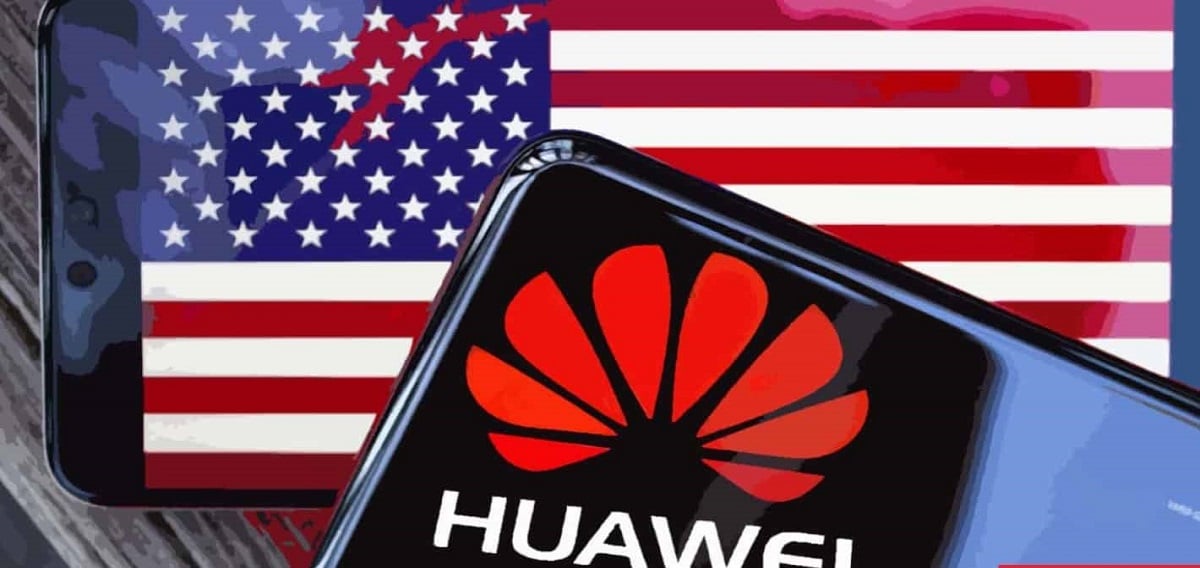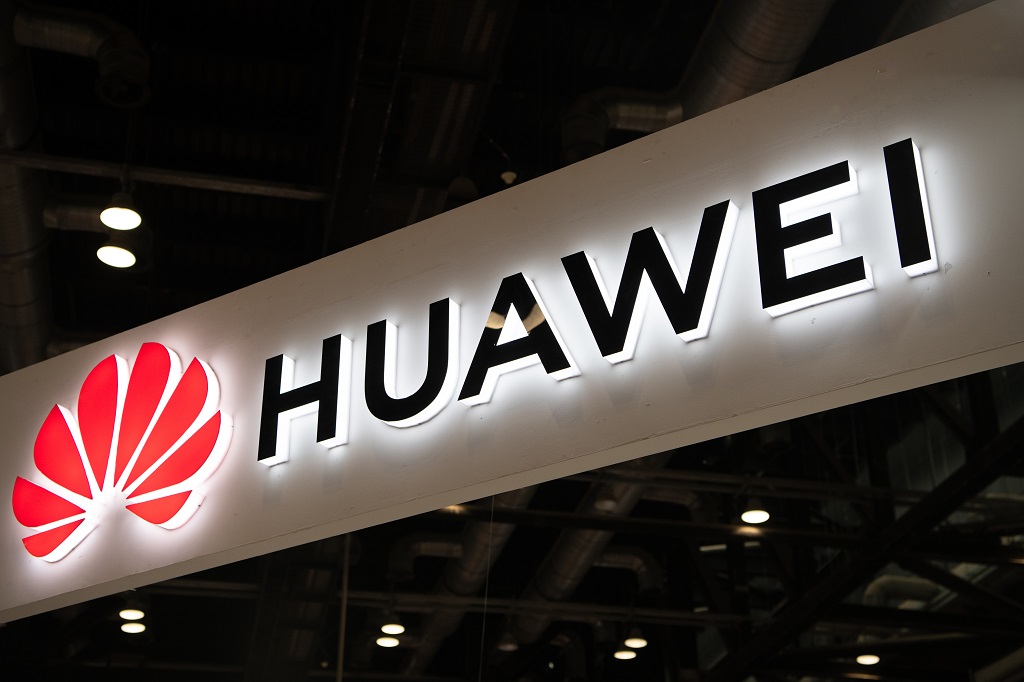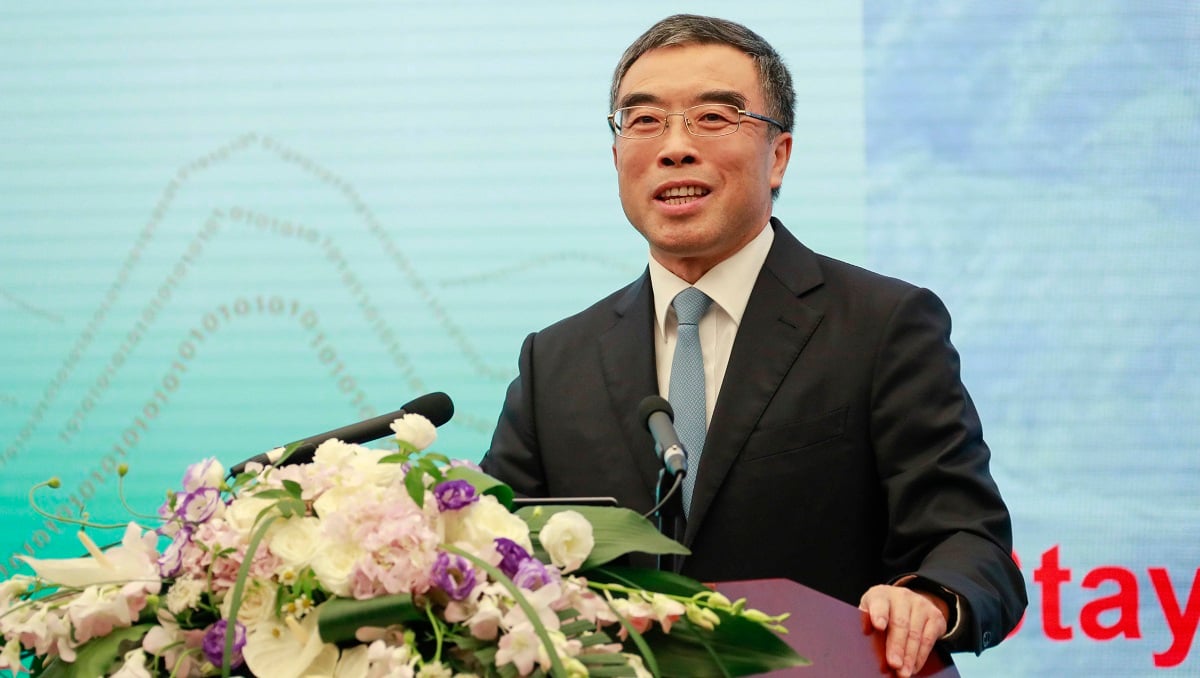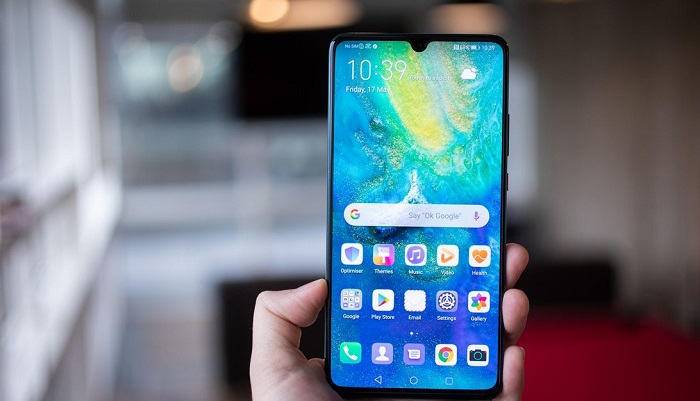“Apple is My Teacher” – Says Huawei Founder Ren In an Interview
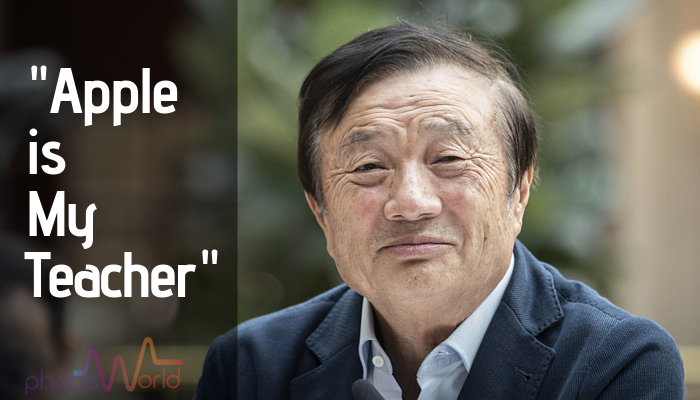
In Recent, Bloomberg News interviewed Huawei Technologies Co. founder Ren Zhengfei at the company’s headquarters in Shenzhen. Bloomberg News interviewed Huawei Technologies Co. founder Ren Zhengfei at the company’s headquarters in Shenzhen. The following excerpts, translated by Bloomberg, have been condensed and edited for clarity:
In an Interview with Bloomberg, Huawei Founder Ren calls Apple his Teacher!
Here’s the complete interview:
Bloomberg: President Trump has suggested that Huawei could be a factor in any trade deal between the US and China. How likely is that, do you think, from your perspective?
Ren: The U.S. has never bought products from us, so how can they negotiate with us? Even if the U.S. wants to buy our products in the future, I may not sell to them. There’s no need for a negotiation.
I will ignore Trump, then who can he negotiate with? If he calls me, I may not answer. But he doesn’t even have my number.
Bloomberg: President Trump has described Huawei as a dangerous company, he said I’m quoting – from a security standpoint, and from a military standpoint, this is a dangerous company. How do you respond to that?
Ren: 5G is not the atomic bomb. 5G is just a tool to transmit information. The content transmitted has nothing to do with the transmission tool. It’s just like a microphone — you can’t say a microphone is a dangerous tool because it can transmit voices. But the content of the voice, the person who speaks into the microphone, could be dangerous. How come the tool is considered dangerous?
Bloomberg: You have said in the past that you think President Trump is a great president. Do you still think he is a great president?
Ren: Trump is a great president because he tells the whole world that Huawei is a great company and not to sell components to us, which is a promotion for us. We can’t even keep up with supplies as orders have been increased. I think he is a great president as he promotes how great Huawei is.
Bloomberg: The decision to blacklist Huawei by the U.S. is being framed by some U.S. lawmakers as essentially a death sentence for the company, do you see this as a question of life and death for Huawei?
Ren: Huawei now is like a plane with so many holes after being attacked. But we still don’t want to die, we want to fly home. So that’s where we are. The U.S. has put us on the banned list, so we might have some difficulties. But we want to fix the holes and adjust the route while we are flying. We will definitely be able to survive, and be able to lead in areas like 5G technology.
Bloomberg: The list of companies that supply Huawei with components, but also software, that are now cutting off those supply, is growing. Of course Qualcomm, Intel, ARM Panasonic, Google as well. So I guess the question is for how long can Huawei survive without those supplies, both components and software?
Ren: The U.S. has taken very extreme measures to target Huawei. The U.S. is so powerful, but why are they so scared of us? I think they overestimate Huawei. Such a small company, how come it’s been paid so much attention around the world? I’m excited that we have so much attention but I think they exaggerate our role in the world. We haven’t done any promotion yet, but someone has already done such a great job of promoting us. I’m so grateful.
Bloomberg: Are you looking to change your supply chains at all to ensure that you have the components that you need? Is that a process that you’re looking at now?
Ren: We will maintain our existing supply chain and will continue to place orders with U.S. companies. But if they can no longer supply us, the portion of our own in-house products will increase. We will find our own way to solve our problems.
Bloomberg: The critics of Huawei would say that you’ve got to where you are through intellectual property theft and government support. What is your response to that?
Ren: The U.S. has not developed that technology, so from where should I steal it? It’s more likely that they steal our technology, now we are leading the U.S. If we were lagging behind, Trump would not need to make so many efforts to attack us. He attacks us because we are now more advanced than them.
Bloomberg: In the past you faced the legal challenges from Cisco, from Motorola, and from T-Mobile. What does that say about the culture of the company, and what steps have you taken to address those issues that came up as a result of those legal cases?
Ren: First of all, I think all these cases have been heard in court. We should respect the courts’ judgments. We require all of our employees not to do anything wrong in this regard. We have a huge amount of technology. If asking us what contributions we’ve made for human beings, we would say that we have over 90,000 patents, many of them are patents we’ve obtained recently for information technology. We’ve made huge contributions to the information foundation of the whole society. Among those, over 11,500 core patents were filed in the U.S. And the U.S. government has approved them. So we have patents in the U.S. If they could understand the contribution Huawei has made for humanity, the dispute may be resolved.
Bloomberg: If at a moment of a national crisis, the government came to you and said — we need your help, we need your cyber skills, we need access to your network, because it’s for the good of the country, for good of the government, for the good of the Chinese people, how would you respond?
Ren: We absolutely would never install any back doors, we would never do that. We serve human beings, we don’t serve intelligence services. Why should we install back doors?
Bloomberg: What are the practical steps for denying a request like that in China?
Ren: We’ve never done that. A German newspaper released an article saying they could not find any back doors in Huawei’s systems. In the UK, Huawei was under the world’s strictest scrutiny, so we could earn the country’s trust. Under such scrutiny, it was as if we took off all our clothes to prove we have nothing to hide. So the UK agreed to use our equipment.
Bloomberg: How did you go from being an engineer in the People’s Liberation Army to building and setting up Huawei as a company in 1987?
Ren: My history can be divided into two parts. The first part was when I served in the military when China was a planned economy before the big military layoffs. I was in the military elite, but we all got laid off out of the blue, throwing us into the ocean of the market economy. I didn’t understand the market economy at all.
We choked on tons of water in that ocean. We didn’t understand what the market economy was. We lost lots of money because we trusted people too much. We couldn’t afford to hire a lawyer, so I read law books. Afterwards, I realized two important things about the market economy — one is the supplier, and one is the customer.
Bloomberg: What were you ambitions for the company back in 1987?
Ren: I didn’t have any goals. At that time, we didn’t even have enough food. I clearly recall when my daughter was very little, her mother often told me that she needed to go to market at around 5 a.m. to buy stale fish and shrimp. The dead fish and shrimp were sold at a very cheap price in Guangdong. She cooked it for our daughter to provide protein. She said without enough protein, children cannot grow healthy. We could only maintain the minimum standard of living. So we did not have any goals. The goal was only to survive — we didn’t even know whether we could survive. My most famous slogan at the company is “survive, survive and survive.” Even today, when we are like a damaged airplane, our slogan is still to survive, rather than any great ambition.
Bloomberg: Did you ever image that you will be sitting here today in this position?
Ren: Actually if people don’t desire much, they can be more capable. I don’t desire much. As you can see, I don’t want to take too much money. I only hold a small portion of company shares. People say I’m rich, but back in 2000, I didn’t even own an apartment. The apartment I rented with my wife was only half the size of this room. It faced west and had no air-conditioner.
There was no turning back for us. If we went backwards, it would be poverty, if we went forward, it would be still poverty. But, if we kept going, there might be a slim chance of hope, while there was absolutely no hope if we went backwards. So we had to keep walking forward, walking and walking. All of sudden, we saw the sunshine, we suddenly realized we were at the top of the Himalayas.
Bloomberg: How did you manage to go from behind your competitors, like Ericsson, like Nokia to being the leader in 5G? What steps were implemented? How did you manage to make that leap?
Ren: First of all, we spent time at work when others were spending time having coffee. In general, we worked harder than others. Secondly, we distributed what we earned to everyone rather than keeping it in our own pockets. So we could attract many good scientists and talented people to join us.
Bloomberg: Do you succession plans in place?
Ren: We’ve had a succession plan for a long time. We won’t give the company to one single person, we will give it to a group, with sub-groups. It’s like giant succession plan, not a single-person succession plan.
Bloomberg: Your daughter faces extradition to the U.S from Canada and she is facing charges in the U.S. of fraud and breaking sanctions, those the allegations from the U.S. side. President Trump has suggested he could intervene in to help your daughter, presumably you would be welcome that kind of intervention.
Ren: Canada violated the law with this arrest. We will point out these violations during the court hearings. Meng Wanzhou has never committed any fraud, which we’ve already made clear. Two sides can present evidence at the court, we have evidence. Meng’s case is politically motivated.
Bloomberg: Do you think the legal action against Canada and the U.S. is helping your cause, or is there a risk that it inflames tensions?
Ren: The problem is that it’s the U.S. and Canada who sued us first, then we counter-sued. Why are we, the ones who followed suit, considered to be the ones disrupting the social order? If you knew it would disrupt the social order, why would you sue us? Why shouldn’t we file a counterclaim after you sued us? They can’t be that arbitrary. The U.S. is a fair, open and transparent country. I have my right. You have your right to sue me, I have my right to defend myself.
Bloomberg: I just want to also bring it back to some of the original topics we talked about at the beginning around the supplies. We talked about how some of the major suppliers like Intel, like Qualcomm, like ARM, Panasonic and Google are restricting their supply of components and software to Huawei. Just explain to us how you weather that storm.
Ren: The U.S. manages its own companies, the U.S. is not the international police. They can’t manage the whole world. The rest of the world decides whether they should work with us based on their own business interests and positions. If some companies don’t want to work with us, it’s like a hole in the airplane. We’re working to fix the hole but the airplane is still able to fly.
Of the chips we’ve been using, half are from U.S. companies and half we produce ourselves. If the U.S. imposes further restrictions on us, we’ll reduce our purchases from the U.S. and use more of our own chips. If American companies have permission from Washington to sell to us, we will continue to buy from them.
Bloomberg: What extent of damage, how much damage do you expect to be felt in the consumer division of the business, so smartphones and laptops, which depend on U.S. chips but also U.S. software?
Ren: We might miss our expected growth target, but we are still growing. Being able to grow in the toughest battle environment; that just reflects how great we are.
Bloomberg: Does the actions that the U.S. has taken, does that mean you’re going to have to ramp up that R&D spending even more to develop your own in-house products and components?
Ren: We set our sale prices relatively high. Our current prices are higher than Ericsson and Nokia. So we can make lots of money.
As long as we can afford to live and as long as we can survive, we would like to invest more in R&D. Even during the most difficult time, we still need to invest in the future, otherwise we don’t have a future.
Bloomberg: You had bragging rights earlier this year, you overtook apple as the number 2 smartphone maker, you saw smartphone sales in the first quarter jump by about 50%, and of course you do have that goal of becoming the number one smartphone maker in the world. Does that goal now have to be shelved?
Ren: An apple is as big as this. We became a peach over the past few years, a bit bigger than an apple. We might become a plum in coming years, smaller than an apple. But still edible. A plum is just a little bit sour and bitter.
We can become bigger or smaller. We are not a public company, we are not only pursuing growth or profit. It’s good enough for us to just survive.
Bloomberg: There have been calls by some in China for Beijing to retaliate against Apple. Is that an action that China should be looking at taking?
Ren: That will not happen, first of all. And second of all, if it happens, I’ll be the first to protest. Apple is the world’s leading company. If there was no Apple, there would be no mobile internet. If there was no Apple to help show us the world, we would not see the beauty of this world. Apple is my teacher, it’s advancing in front of us. As a student, why should I oppose my teacher? I would never do that.
Bloomberg: You’ve talked about having a 2-year lead in terms of 5G, on your competitors. Does that lead get eroded?
Ren: Definitely. If we slow down it’s because the wing of the airplane has lots of holes. If we fly slowly but others fly fast, of course they can catch us up. But we will keep fixing the holes. We will fly fast again once all the holes are fixed.
Bloomberg: A lot of this, maybe all of this, comes down to a question of trust, and from the U.S. side – a mistrust — of Huawei and of China. Do you think there are additional steps, beyond the steps you’ve already taken here, additional steps you could take to improve that trust? Whether that is restructuring the company, listing the company, is there anything you could do to build on that?
Ren: We don’t need to go public, we are very clean. So we don’t worry about what other people say. We won’t go public. You can wait, I think it won’t take long for Huawei to go public — maybe 3,000 years.
Bloomberg: What exactly have you put in place in terms of contingencies? Can you just give us a few more details around the contingencies that have been put in place?
Ren: We might have contingency plans for the core of the airplane, the engine and fuel tank, but we may not have a plan for the wings. We need to review the situation all over again and fix those problems. You can come back to interview us in two or three years to see if we still exist. If we are gone in two or three years, please remember to bring a flower and put it on our grave.
LATEST NEWS ON HUAWEI-US BAN:
- 3 Reasons You Shouldn’t Worry About Being a Huawei Device User
- Huawei US Ban- A Story of Pride, Jealousy and 5G Race
- Huawei Operating System HongMeng to Launch in June
- Huawei’s Support For Rival Apple May Be Short-Lived
- Unfair Allegations are Totally Unjustified: Ken Hu, Huawei
- Price of $1150 Huawei P30 Pro Falls Dramatically to $130?
PTA Taxes Portal
Find PTA Taxes on All Phones on a Single Page using the PhoneWorld PTA Taxes Portal
Explore NowFollow us on Google News!

